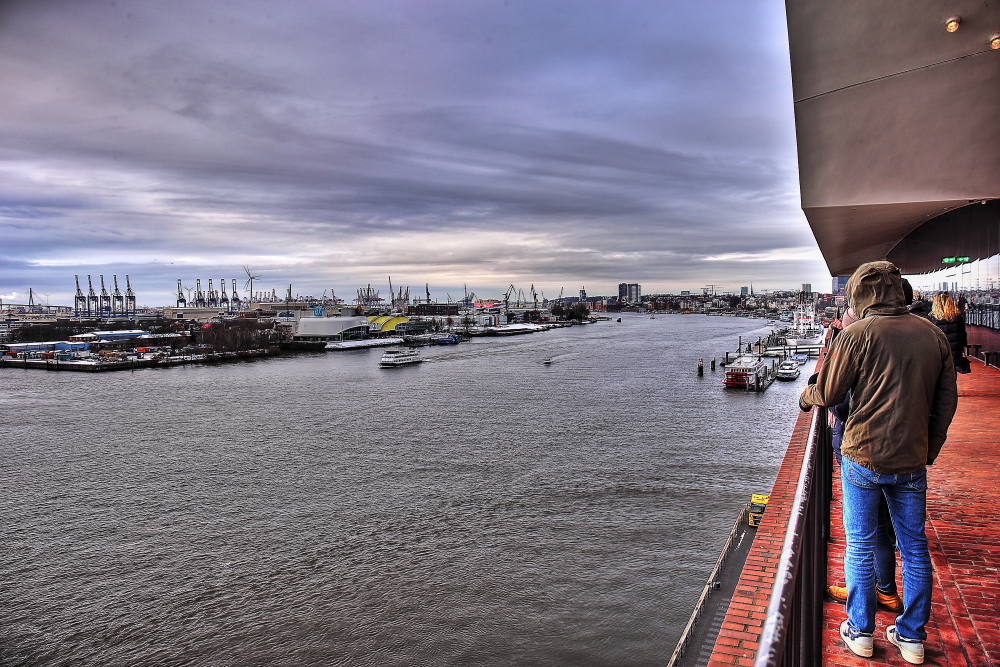
HAMBURG – for me, in the past, in the present
This is a short snippet, filmed and main station in April, 2024
#1 Introduction
Und wenn Du weg willst, mußt Du gehn,
ich hab schon viele abhau’n sehn
aus diesem halben Land
Ich halt mich fest hier, bis mich kalt
dieser verhasste Vogel krallt
und zerrt mich über’n Rand…”
(Wolf Biermann, “Ballade vom Preussischen Ikarus”)
„And if you want to leave, you have to go,
I have seen many people leave
From half this country
I’ll hold on here until I’m cold
this hated bird claws
and pulls me over the edge…“
My relation to Germany is splitted. I would never say, that I am proud to be German. I feel my life in a difficult way connected with the history and politics of my country. In my childhood, there was a permanent competition, which Germany is better. Thousands of people living in East-Germany were thinking: I could go to the West, if I fail here. They watched every night in the West-German TV, why it seems to be better there. To be honest: When I came to West-Germany with my parents and three siblings, I realized quickly: It is not better, but different. So I began to live in a critical distance — more and more. My parent’s house, the experience to be a part of a minority in East Germany, learned me to think independent. And my work as a journalist strengthen this: There is no soup without a hair swimming in.
My relationship with Hamburg is similar. This city is colorful, full of stories and history. Hamburg is for me the personally city of two serious illnesses, personal defeats and loneliness. I almost died here. It is the city of friends, of trustworthy people, of music and of writing, taking photographs and being creative. Hamburg is the city of successful journalistic work, with a fee that leaves me stuck below the poverty line. I told so many stories, tried to help a lot of people and solve problems. And I did.
„If You want to go, You have to go“. Or: „There must be a better world somewhere“ – I really don’t know, if it.

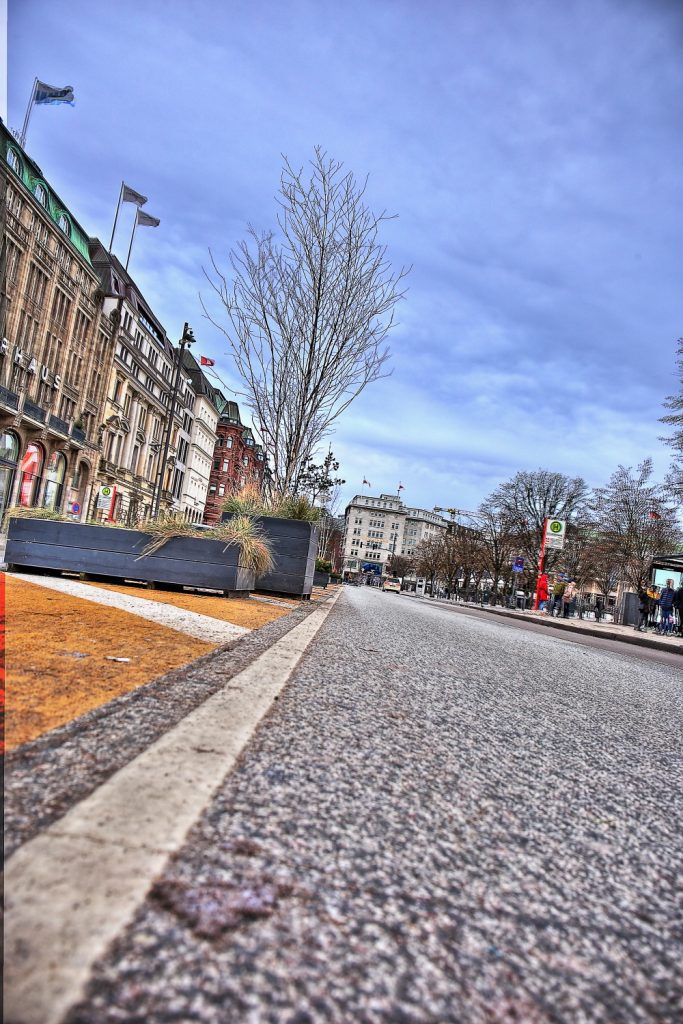

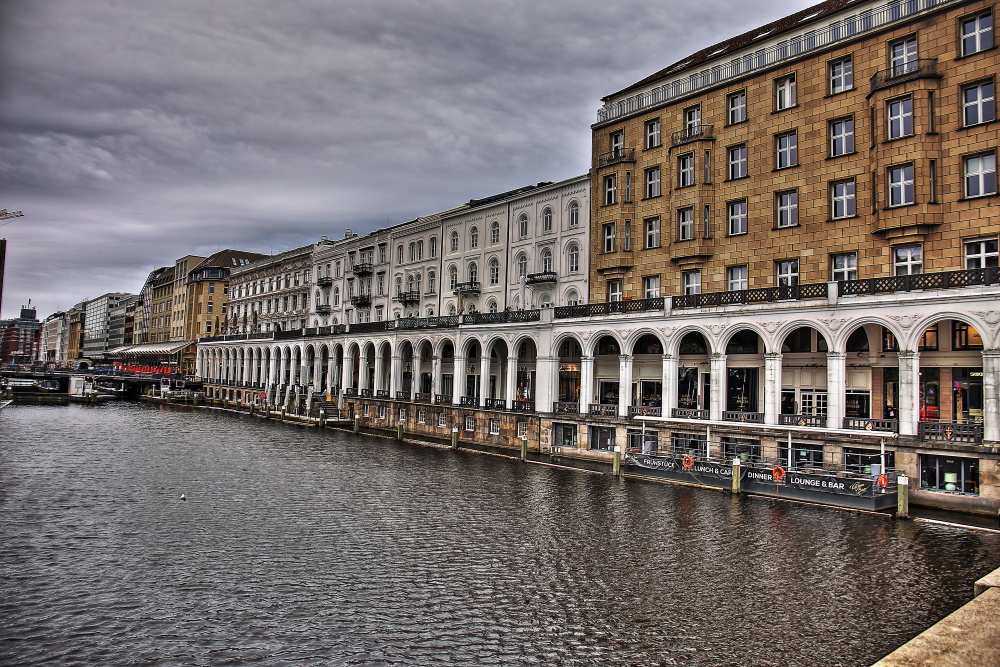
#2 – second introduction
Despite: Hamburg, this light. This bigness. The endless settlements, so often containing houses of the 19th century (since a long time ago, I have loved). The harbor, the water, the bridges (no town in Europe has more bridges). The humans, with dry humor, friendly, direct. We make jokes, only short remarks, on the streets to other people. I couldn’t travel here when I was living in East-Germany. Later on, I visited Hamburg several times, once with a friend, and again with my family; I made the first longer trip with a car, I got, to Hamburg. When I was older, I had a girlfriend here. It failed. Despite that poor circumstance, I moved here anyways (it was also a type of accepting and resolve for me).
I explored the ties of history: They all knew each other. I found lines I never expected. And I found humans who were similar to me. Hamburg history is an endless story and is a part of me. Let me tell you some chapters.
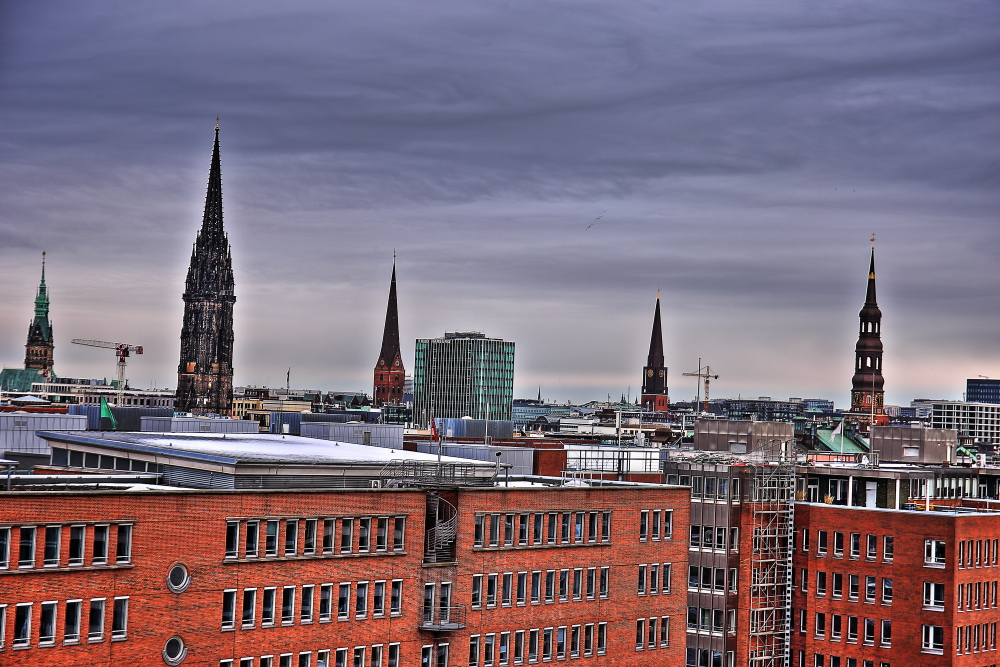
#3 religion, politics, social life
The ancient Hamburg somehow had a long time connection with the Christian following. Pope George founded the Archbishopric of Hamburg in 832, and sent Ansgar as the Bishop. Four (later five) main churches, called “Hauptkirchen“ were also the center of politics and society. Hamburg today is a multi-religious city.
Hamburg sees itself as a free city. It is one of the „Hanseatic towns“ (like Bremen, Lübeck and others). Free trade (mainly through the port) plays a major role. Free city means, Hamburg has never really been longer under the baton of a king or an emperor. Therefore Hamburg is an independent federal state.
The city has experienced times of openly visible poverty. The so-called Gängeviertel were home to the poor (and the middle class). Even before the great cholera epidemic, dangerous diseases broke out. The narrow streets and the lack of a proper water supply were the worst problems. Poorness is more hidden today. I live in a relatively poor district with a good 70,000 inhabitants. According to the office for statistic 13,571 humans are getting social care. Alarming are the figures for kids, who are under 15 years old: 4,119 of them are getting social welfare. Last point: 6,339 kind of family’s era getting welfare also (Figures of December 31st, 2022). Around 1,200 Hamburg people earn at least 1 Million Euro/year (figures of 2019). One is sure: The gap between rich and poor people increased due Covid and the war’s dramatically. Almost 2 million people live in Hamburg.
# 4 crises and war
Hamburg — like others – has experienced a series of crises, disasters and wars. These were years and shorter periods that have left clear scars. Let me tell You – as an example – parts of the 20th century:
The beginning of WW II had it’s source in three main topics. First: Germany lost the WW I. There were groups in Germany never accepted this defeat. Second: In the 20th and 30th poorness increased dramatically (with a fast running inflation). Third: The young, German Democracy wasn’t really secure; right and left extreme party’s fought. Adolf Hitler’s Nazi Party tried to overtake power violently in 1923 and failed. In 1933 his party won the National elections; they destroy quickly all Democratic rules, established Concentration camps, arrested his opponents and began the Persecution of the Jews. The WW II began in 1939 with the attack against Poland.
The Nazis tried to establish their guys everywhere in the country. The abolition of the democratic separation of powers, the establishment of new power structures, the establishment of Nazis in key positions in politics, administration, the Protestant church (that’s a whole separate topic) and culture – all of this also applied to Hamburg. Around 1,500 writers left Germany — for example Bertolt Brecht, Thomas Mann and Kurt Tucholsky.
In the War thousands of Forced laborers worked in Hamburg, there was a terrible concentration camp with a lot of Branch offices. In 1943 the “Gomorrha”-operation took place: British and American bombers attacked Hamburg, probably 34,000 people died, over 27,000 apartments were destroyed.
#5 arts and culture, integration
Hamburg has been a great source of arts and culture. A lot of significant composers, writers, theater guys lived and live here. The collection I write about is – for sure – incomplete.
Hamburg had the first non-state opera house in Germany. Composers such as Georg Philipp Telemann and Gustav Mahler worked in Hamburg. Some others were born here: Johannes Brahms, Fanny and Felix Mendelssohn and Johann Adolf Hasse. Matthias Claudius, a writer and journalist, worked here for a long time (he wrote the famous song „Der Mond ist aufgegangen“). Wolfgang Borchert, Hans Henny Jahnn, Friedrich Gottlieb Klopstock, Siegfried Lenz, Peter Rühmkorf, Arno Schmidt – all writers are associated with Hamburg. The first volume of „Das Kapital“ by Karl Marx was published in Hamburg. The German weekly magazine DER SPIEGEL was founded here. The „Spiegel Affair“ of 1962 is famous: employees were arrested and the editorial office searched because of a single article – a serious encroachment on press freedom that ultimately failed.
For sure: High culture and art’s are at home in a lot of big city’s (Jazz in New Orleans, Country in Nashville, Blues in Chicago…). But all of them are incomparable at least, right?
Hamburg has been since a long time through the harbor a multi-ethnic city. We have today 31,5 % migrants. A lot of them have a German passport. Country’s like Turkey (96,388), Afghanistan (55,576), Russia (37,398) have the highest share. EU-citizens are from Poland (73,380), Romania (17,902) and Italy (14,686). All EU-citizens are allowed to live here. Many migrants were born in Germany.
It isn’t simple to say something final about cultural integration. Some migrants created parallel societies, other are more open. There is a whole science about this topic.
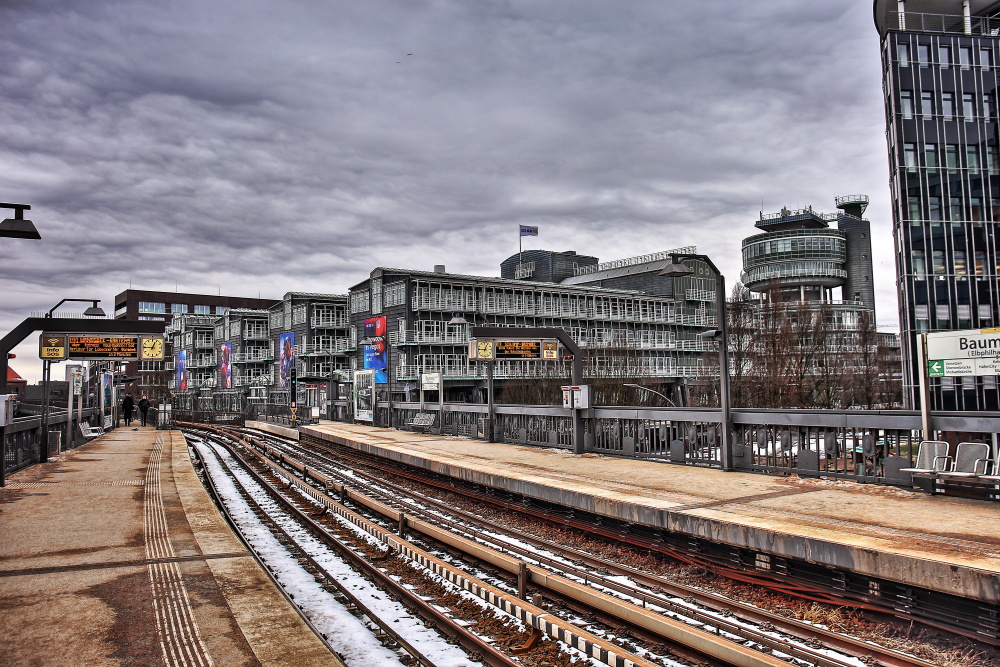
#conclusion
“Hamburg is the most beautiful city in the world”, a lot of people say. Yes, it is beautiful, but it is a city of increasing contrasts. When I leave, I will say: it was a bit of a roller coaster ride for me. But I do not want to miss it.
